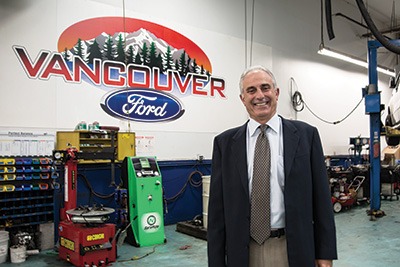“It was brutal,” recalled Creedon. “Never would I have thought anything could hit so hard and take so long to recover. The credit market seized and new car sales dropped by 50 percent. Even regularly scheduled maintenance became second priority to feeding people’s families. Everyone was making tough choices.
“We saw real supply cuts from 2008 to 2010, in response to a consumer demand decrease,” he added.
Vancouver Auto Group’s recovery has been gradual, though Creedon said the company has enjoyed a significant increase in business over the course of this year; truck sales are up 45 percent and used car sales are up 25 percent over 2012 sales. The company’s 2013 sales were more than double that of 2009.
“We are expecting even more significant gains next year, as plants ramp up,” said Creedon, adding that he hopes to once again reach a state of free demand, where customers can get exactly the car they want without waiting for it.
Looking to the future, the company president said he expects to see more electric vehicles, and at a continually lower price.
“It makes sense in this part of the country,” he said, citing our region’s clean energy sources and overall low carbon footprint per capita. “For states burning crude or dirty coal, gasoline is still a cleaner, cheaper way to fuel cars,” he noted.
Creedon also expects a continuing increase in truck sales as engines become much more fuel efficient.
“The Ford Ecoboost engine is leading the way in that technology,” he said. “We are seeing stronger towing capacity, with more fuel efficiency.”
In good news for all drivers, Creedon believes the indicators show reason to expect a long-term drop in fuel costs too, which he feels will improve car sales as well.
Looking even further down the road, he said Vancouver Auto Group is looking forward to fuel cell vehicles, powered by hydrogen and producing only water.
“Hyundai is bringing the first one online next year,” he said. “Maybe not here in the U.S. yet, but it’s coming.”
{jathumbnail off}




